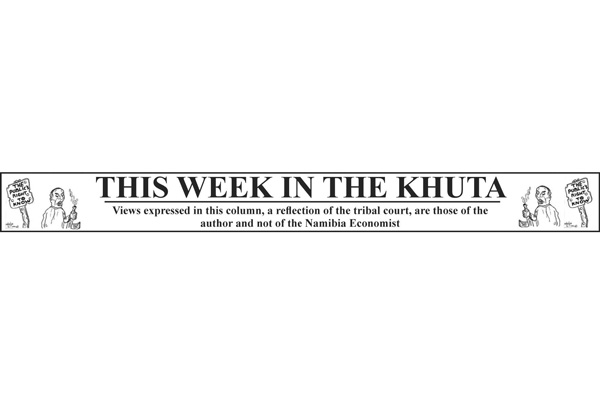
Access to information is a pervasive local problem, not only a government headache

Response by the Executive Director of the Institute for Public Policy Research, Graham Hopwood, to the Minister of Information and Communication’s allegations of a malicious agenda. The ‘Access Denied: Access to Information in Namibia’ report can be downloaded from http://ippr.org.na/publication/access-denied/
The Institute for Public Policy Research (IPPR) has a mission to deliver, independent, analytical, critical and constructive research on social, political and economic issues that affect development in Namibia.
In light of the above, we welcome constructive appraisals and criticism of any of our publications and research findings in the hope that this will lead to high-quality, informed debates about policy proposals and options.
Last year the IPPR sought to make an assessment of the state of access to information in Namibia. The principal means of doing this was by making a range of information requests to over 100 government bodies, public enterprises, private companies, and civil society organisations. The results of the research can be found in the
The issue of Access to Information was deemed appropriate because of the strong importance government attaches to making information available to the public, as expressed in the Harambee Prosperity Plan (HPP) and NDP5. For example, the HPP commits to providing the “means for access to public information/data and the enact(ing of) freedom of information laws by year two of Harambee” (2017/18).
Complementing the HPP is NDP5, which in its executive summary states: “Good governance, responsive institutions and an engaged citizenry are the bedrock of democracy and sustainable development.”
The research report and its findings provide an opportunity for government and other sectors of Namibian society to identify weak points and best practices in the release of information and therefore move towards the NDP5 aim of “universal access to information”.
In the light of the above, it is disappointing that the Minister of Information and Communication Technology, Hon. Tjekero Tweya, chose to issue a blanket condemnation of the Access Denied report by claiming it was “devoid of any truth” and that IPPR has a “malicious agenda”.
The IPPR’s researchers hand delivered information requests to 20 ministries. All the requests were addressed to the relevant permanent secretaries. It is difficult to accept the ICT Minister’s argument that the information requests should not have been sent to the Permanent Secretaries but rather to the Public Relations Officers in each Ministry and that this somehow resulted in the high number of non-responses.
It is concerning if the offices of Permanent Secretaries are not capable of passing on information requests to the ministry PROs or other relevant officials. Follow-up phone calls and emails were also made to the Permanent Secretaries’ offices.
In addition, the IPPR chose to address the information requests to Permanent Secretaries because in the past we have been told by Ministry PROs and other officials that requests for information should be sent first to the Permanent Secretaries’ offices. Our colleagues in the media have also confirmed that this is often the response from PROs and other government officials.
The Minister also claimed that IPPR “came short of providing a list of names of those officials they have contacted” to the Ministry after the launch of the report on December 5 last year. Again the Minister claimed “the IPPR research team promised to provide MICT with the names of the so-called public servants whom they contacted, but could not submit such list.”
It has to be pointed out that after the report was launched, the MICT contacted the IPPR for further information on the officials who had been approached for information on 07 December. It was made clear at the launch and then to the MICT that the approaches had been made to Permanent Secretaries. The IPPR sent a table listing officials who had been contacted during follow-up calls and emails to MICT on Wednesday 13 December.
The MICT official who had been requesting the information responded via email later on 13 December by saying ‘Thanks a million’. There was no further response from the Ministry saying that the information provided was inadequate in any way.
The Minister also stated that 80 percent of the information requested is “in the public domain and easily accessible” with most being available on government websites. The IPPR’s researchers had checked official websites to see if the requested information was already available on line. It would be helpful if the MICT could list the URLs where all this information is available.
It should also be pointed out that the requests made by the IPPR were carefully chosen to be non-controversial so that there was no question of responses being denied on grounds of ‘security’,
It is important to note that this report showed high levels of nonresponsiveness from the private sector and even civil society and was not simply aimed at exposing problems in government when it comes to access to information.
There is no point in denying that ATI is problematic across different sectors of Namibian society.
Improving access to information is something we can all work on together – in the spirit of Harambee – to ensure the public have the information they need.
Original statement contains an addendum of IPPR responses and comments, and can be viewed by following the hyperlink at the top of this statement. – Ed.












































